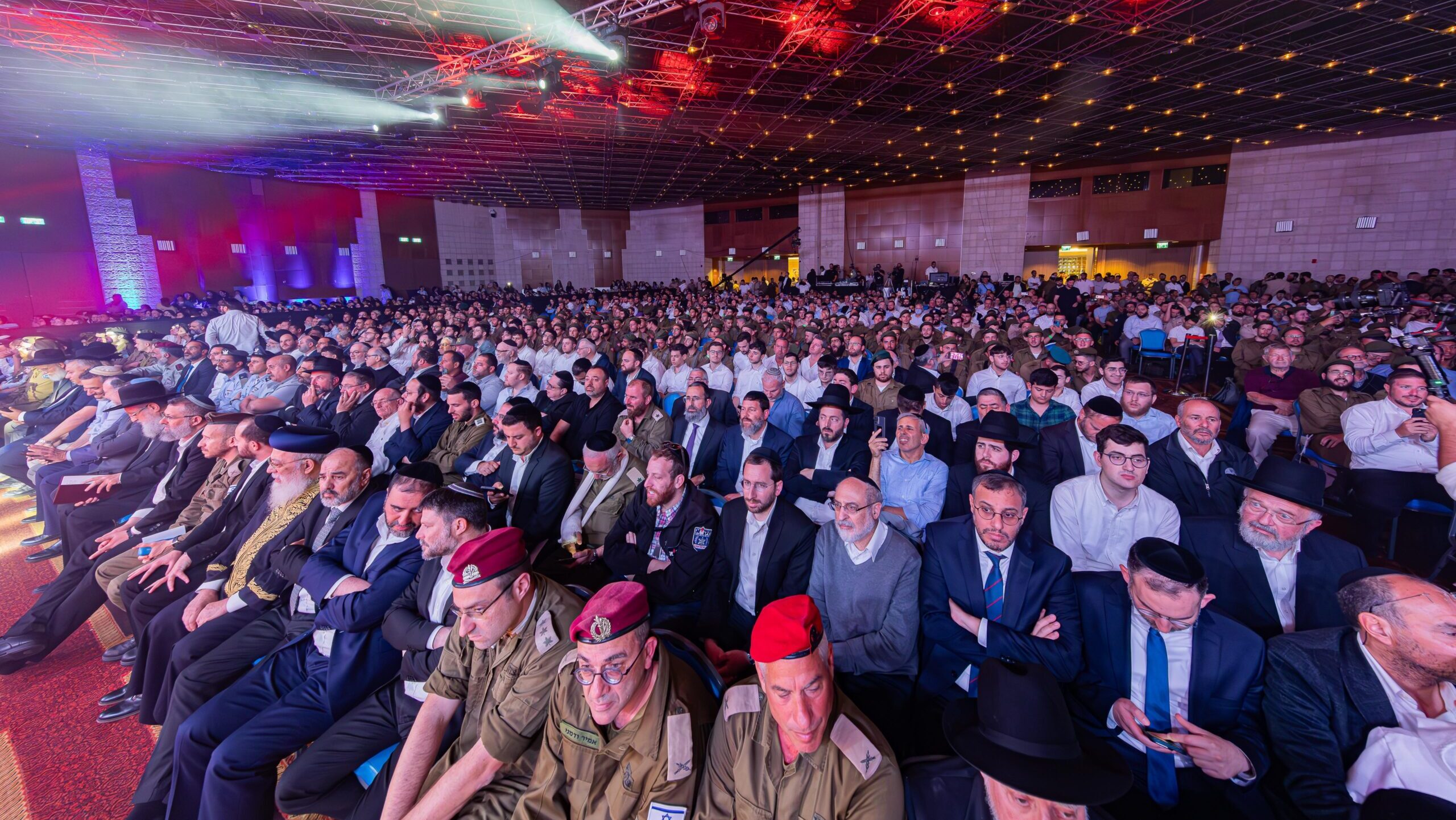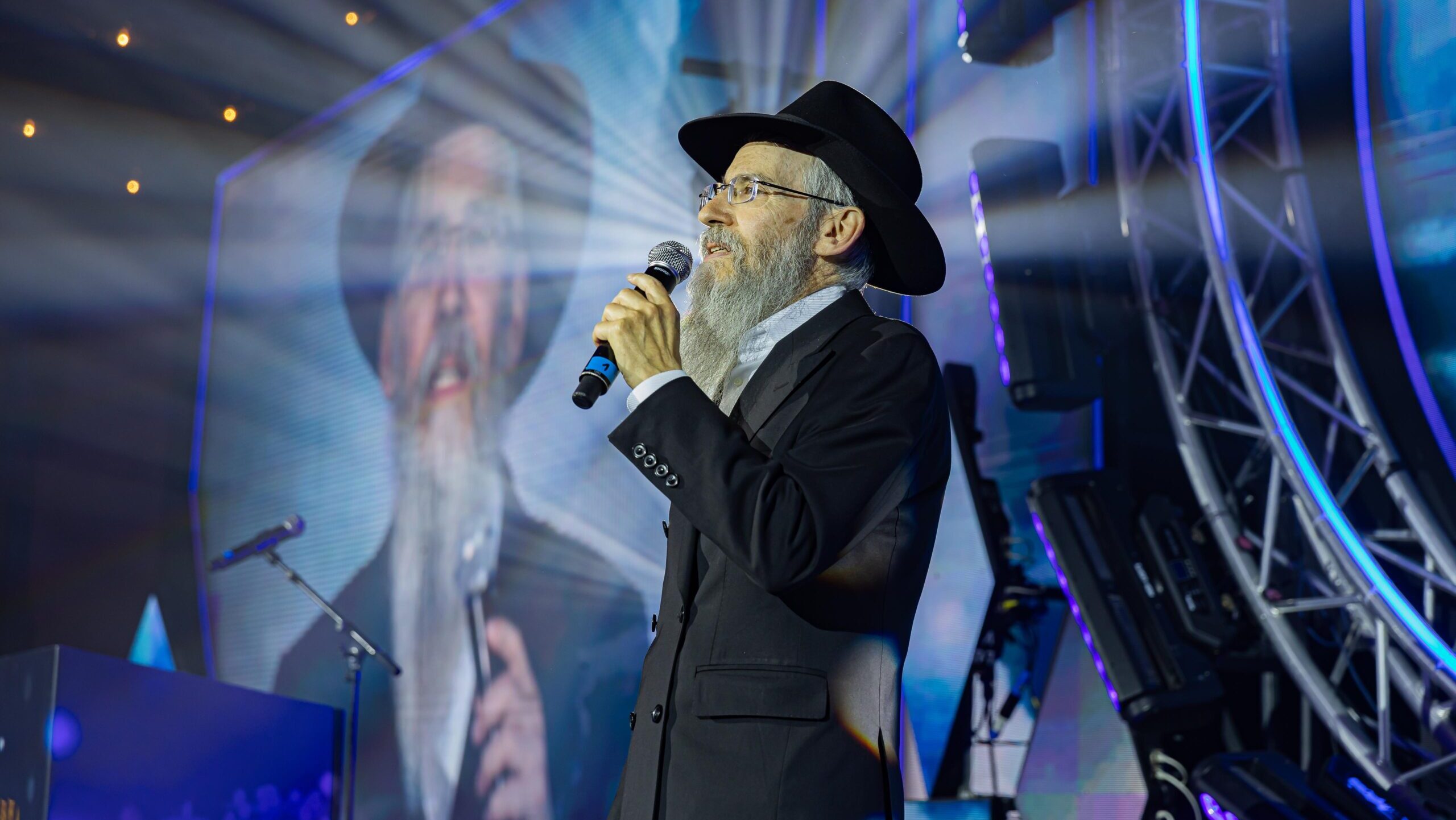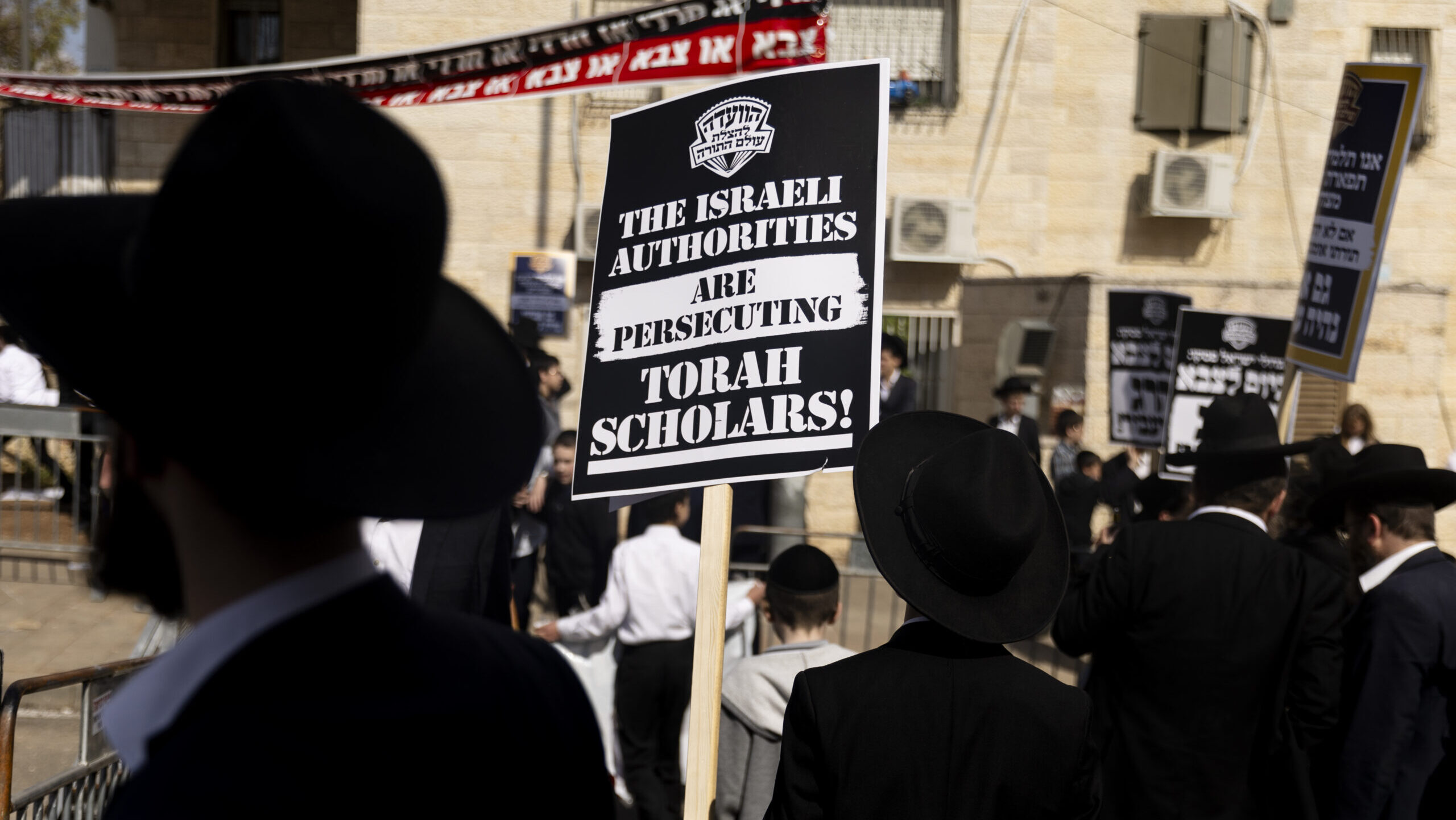Thousands of Haredim Honor Fallen Soldiers in Jerusalem Amid Draft Decision
As the deadline for government action on Haredi enlistment approaches, ultra-Orthodox Jews gathered in Jerusalem to mourn community members who fell in battle
More than 4,000 ultra-Orthodox Jews, known in Hebrew as Haredim, took part in a Memorial Day ceremony in Jerusalem on Sunday amid growing tensions in Israel regarding the exemption from mandatory military service for Haredim.
The commemoration of ultra-Orthodox fallen soldiers, held this week for the sixth consecutive year, is a project of the Netzah Yehuda Association, an organization that supports Haredim serving in the Israeli military, along with the Defense Ministry, the Israeli Ground Forces, and the Jerusalem Municipality.
For the first time, this year’s event was held in the International Convention Center. Previous years’ events drew crowds of about 1,000, but increasing Haredi involvement in the military, along with the devastating effects of the Oct. 7 attacks and the ongoing war, drastically increased the number of attendees.

Thousands attend a Memorial Day ceremony in Jerusalem on May 13, 2024. (Courtesy)
Thousands of Haredim attended the ceremony, including soldiers, chief rabbis, government ministers, members of the Knesset, senior military officers, and bereaved families.
The conference room was filled with attendees representing different genders, ages, and backgrounds. A partition divided women and men for the ceremony, but they remained in the same room to follow the live event.
While the ceremony itself was religious, the dress code was varied among both women and men. Many attendees wore military uniforms.
Different speakers took the stage to recall the Haredi victims of the current war and past conflicts. Musicians performed songs in their memory in Yiddish and Hebrew.
French Rabbi Nathaniel Loeb, whose son Binyamin died in battle on Oct. 7, spoke at the ceremony.
Loeb flew to Israel upon receiving the news of his son’s death.
Everyone burst into tears and put the tefillin on. At that moment, I understood the power of the people of Israel despite all differences. Jews can not only die together but live together.
“I got up on the plane on the way to his funeral in Israel. I asked everyone to put on tefillin, and those who refused, I showed them his picture, acknowledging that he wouldn’t any longer be able to put them on,” Loeb told the crowd. “Everyone burst into tears and put the tefillin on. At that moment, I understood the power of the people of Israel despite all differences. Jews can not only die together but live together.”

Rabbi Nathaniel Loeb speaking at a Memorial Day ceremony in Jerusalem, May 13, 2024. (Courtesy)
The question of Haredi enlistment has been a controversial one throughout the years. For decades, ultra-Orthodox men of military age have been able to avoid the draft by enrolling in yeshivas and obtaining repeated one-year service deferrals until reaching the age of military exemption.
In 2017, the High Court of Justice held that a blanket military service exemption for ultra-Orthodox yeshiva students was discriminatory and unlawful. Since then, Netanyahu’s coalition has struggled to come to a consensus on the issue.
The law allowing for blanket military service exemptions expired in June 2023, and a subsequent government resolution instructing the military not to enforce conscription on ultra-Orthodox men lapsed on April 1.
On March 28, the Supreme Court ordered the government to stop funding yeshivas whose students defy mandatory conscription. This decision created a massive political problem for Netanyahu, whose coalition depends on ultra-Orthodox parties that oppose the conscription of Haredim.
In the past weeks, Cabinet Secretary Yossi Fuchs and representatives of Israel’s Haredi parties have been negotiating to reach a compromise on the issue before the May 16 deadline.
Clashes have recently broken out between the ultra-Orthodox and the police. Much of the Haredi opposition to military service stems from the community’s strict religious lifestyle, which they fear would be threatened by enlistment.
The ultra-Orthodox Netzah Yehuda Battalion, established in 1999, aims to make the military more accessible to Haredim. More than 1,000 soldiers currently serve in the battalion.
A young Haredi man can serve a meaningful service and maintain his religious identity too
Rabbi Tzvi Klabnaw, president of the Netzah Yehuda Association, told The Media Line that the battalion provides a proper environment for ultra-Orthodox men. “A young Haredi man can serve a meaningful service and maintain his religious identity too,” he said.
Finance Minister Bezalel Smotrich spoke at the Memorial Day ceremony about the importance of Haredi enlistment during wartime and acknowledged the Netzah Yehuda Battalion’s example.
Netzah Yehuda has been the center of recent controversies. In late April, the US threatened to sanction the battalion for violating human rights in the West Bank before Oct. 7.
Rabbi Shaul Avdiel, a Netzah Yehuda coordinator, said on the topic: “We, as other IDF soldiers, follow the protocol. Every time that mistakes are made, responsibilities must be taken. Overall, I think that this battalion does a great and professional job.”
Giorgia Valente is a recent graduate of Ca’ Foscari University of Venice and an intern in The Media Line’s Press and Policy Student Program.

